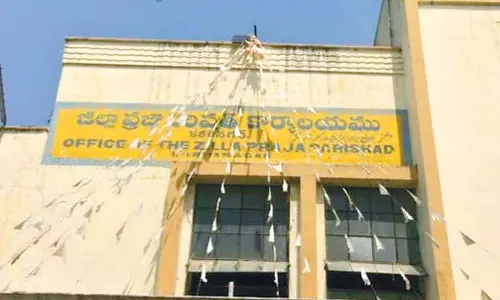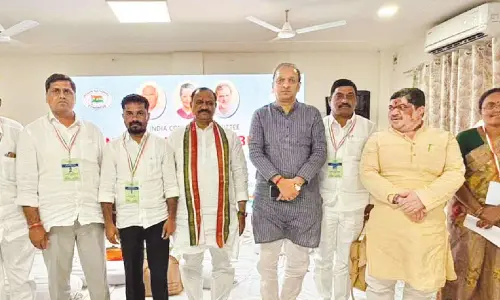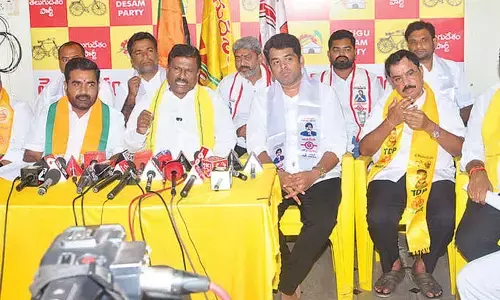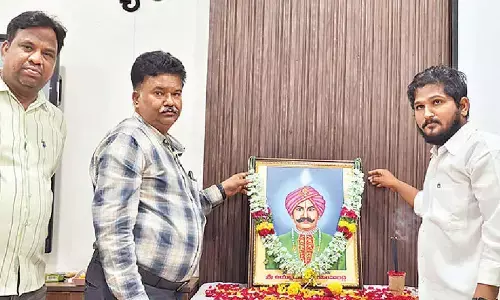Boosting organic farming the Khadyam way
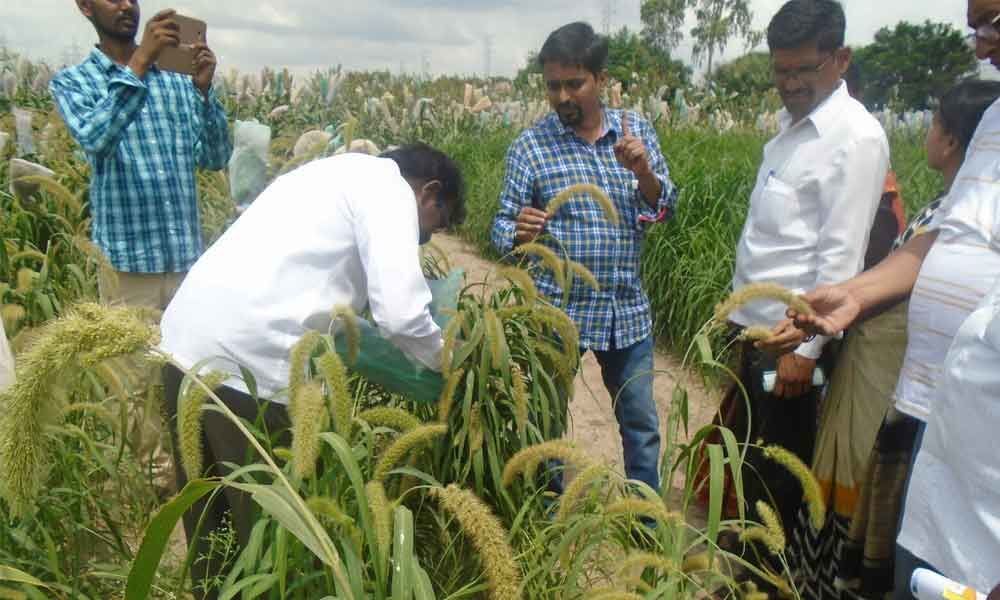
Can rice be grown in a factory? This question is increasingly being asked today as large number of farmers are fast shifting from agriculture to other employment opportunities.
Can rice be grown in a factory? This question is increasingly being asked today as large number of farmers are fast shifting from agriculture to other employment opportunities.
This urge to support the backbone of India's economy – agriculture and farmers, along with simplifying production and consumption of organic millet has led to the birth of Hyderabad-based startup Khadyam Speciality Foods.
Launched in 2015, the agri-food processing startup promoted by GrameenMall Foundation is into creating sustainable agriculture enterprise.
The startup was founded by Sitaram Komaragiri and Madhavi Komaragiri, who have been recognised as Best Entrepreneurs with backward linkages in 2017 by IIMR and by Mahindra Group in 2018 for showcasing exemplary social entrepreneurial spirit.
Khadyam in its portfolio has organic millets and oil seeds. The agribusiness unit is dedicated to cultivation, processing and export (retail/bulk) of millet value added products and cold pressed oils.
Its millet product portfolio includes finger millet, pearl millet, sorghum, foxtail, little and kodo millet along with ready to cook breakfast products like instant dosa mix, foxtail millet upma mix etc, and proprietary products being millet functional idli, instant cup upma mix, millet pasta, functional noodles among others.
The oil category includes sunflower, sesame, groundnut, coconut and castor oil. Their exclusive brand of products are available in the market under the name, Native Foods.
After having worked for nearly 10 years in the pharmaceutical sector, Sitaram opted for farming. Komaragiri says, "While interest and awareness towards healthy food products has picked up, back at the grass root, I witnessed farmers migrating from agriculture. Before preaching, I wanted hands on experience in farming.
In due course, this led to the launch of our family foundation GrameenMall in 2012, to take care of the background integration and agri value chain of Khadyam."
Basically, the intention was to provide traditional food in innovative forms sustaining quality. But, instead of building a brand of products upfront, Komaragiri took the hard way and integrated farmers into their core activity so as to build a strong supply chain. "Each of my products has a story to tell.
We know the source of our produce, the history of each product as the produce is monitored throughout the process from the time its grown in the field until its packed," he adds.
The seeds are sourced from local and national agriculture research institutes reducing the costs and better access to inputs. According to the founder, the cost of the entire crop cycle has been brought down from Rs 5,000 to Rs 2,000. Wherein, the Foundation bears 50 per cent of subsidy.
Having taken the farmer centric approach, Komaragiri motivated farmers to cultivate chemical free organic produce, which requires continuous intervention of the farmer with the farmland.
To meet the need for consistent supply of qualitative raw material for Khadyam, the startup conducts farmer household survey to select the village and cluster of farmers. This will be followed by orientation programme, appointing a supervisor and extension advisory service.
Through this, the startup has created employment, an aggregate centre to buyback the produce and farmer produce organisations for farmer to be self-reliant with access to a local market to sell the produce to other buyers too.
"We walk along with the farmer though out the crop cycle. What is more exclusive is that all these farmers are women. The result is a community momentum breaking all social barriers," the founder says.
The startup has been working with one registered FPO and 45 women self-help groups. Khadyam is associated with women farmers from the past four years in six villages of Vikarabad which includes 600 small and marginal women farmers.
Besides, they also have a presence in Nalgonda in Telangana, Prakasam in Andhra Pradesh, Araku Valley in Visakhapatnam, and recently have entered in Orissa and Karnataka.
In total, 1,350 women farmers with around 4,000 acre of land are into organic farming for Khadyam. By 2022, Khadyam plans to expand their network to 10,000 farmers.
Currently, the startup has a team of 22 with plans to strengthen it to 40 by end of this financial year and upscale to 150 by 2022. Started with six products, at present it has 33 products certified by USDA and marketed in select retail stores in Hyderabad, metro cities of India and regulated markets like the US etc.
Their target is to reach 15,000 retail outlets in India and abroad, for which an ecommerce platform is being developed.
The processing facility in Hyderabad initiated on 3,000 sft has been scaled up to 9,000 sft and is in the process of shifting from semi-automatic to automatic.
With this, the capacity of cold pressed oil will be increased from one MT to 15 MT per day and breakfast premixes from 0.5 MT to 10 MT per day. Other than Khadyam's own brand, the startup under a white label contract, processes the produce for nearly 100 other brands.
Further Komaragiri informs that they are the second company only to be introducing liquid nitrogen into edible oil, for which they are importing the equipment from the US.
Besides they are in talks with Defence Food Research lab and are already associated with Indian Institute of Oil Research in Hyderabad, a collaboration to validate their product and for knowledge support.
Founded with a seed capital of Rs 2 lakh, Khadyam is supported by financial institution up to a tune of Rs 10 lakh and further bootstrapped an amount of Rs 30 lakh for setting up the processing unit.
In the last fiscal, it counted a turnover of Rs 1.7 crore. For expansion plans, recently they have received Rs 1 crore from angel investors and, IIM Calcutta has joined the company as equity partners with an investment of Rs 50 lakh.
Going ahead, for building the brand and meeting 2022 target, they are looking to raise Rs 10 crore.
Komaragiri concludes, "This momentum of sustainable agri enterprise has been created for agriculture to sustain and for achieving an ecological footprint through organic farming method."



